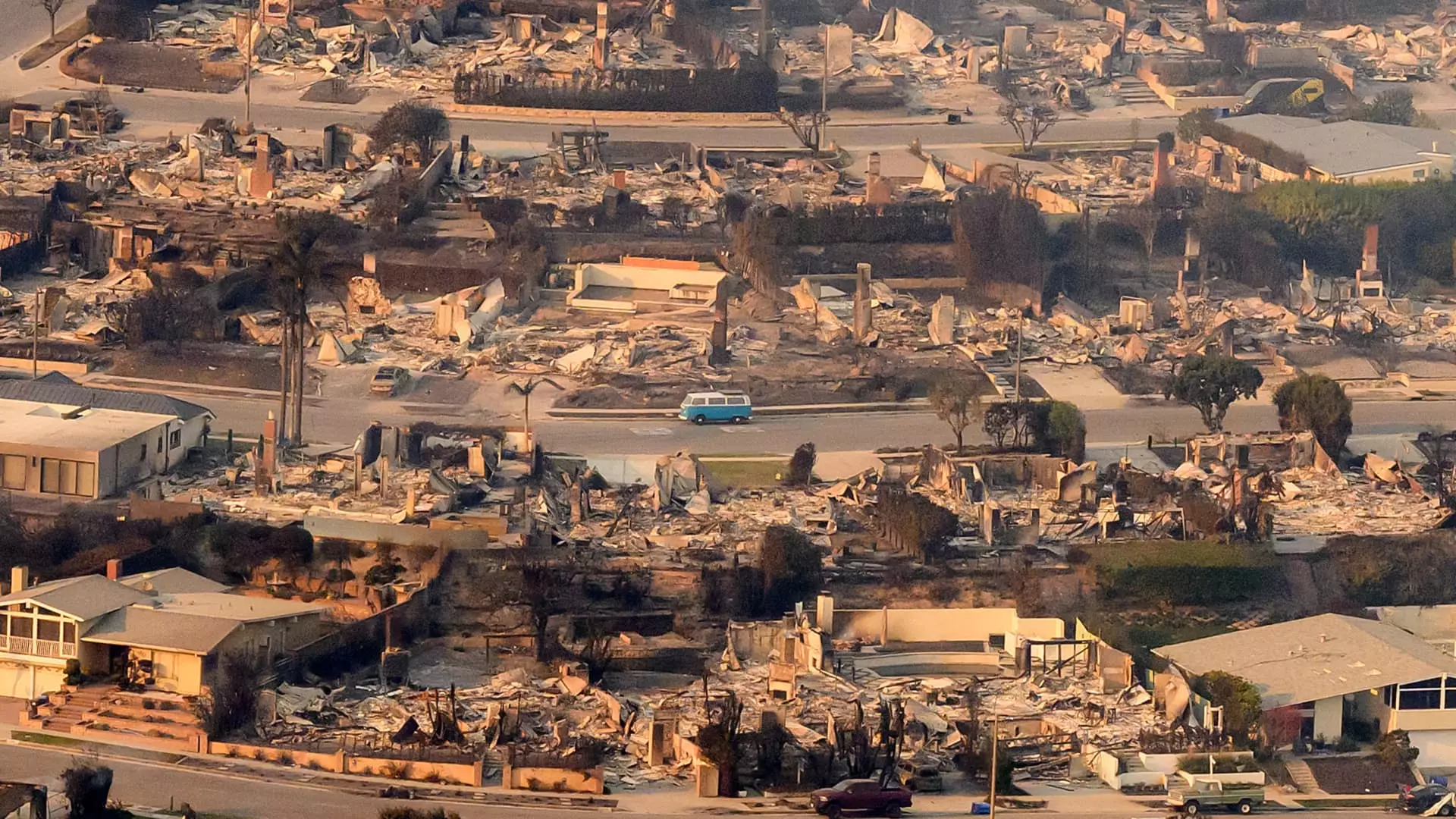Recent devastating wildfires in Los Angeles have triggered dramatic market reactions, particularly among insurers heavily involved in the California homeowners’ market. Notably, major players such as Allstate, Chubb, AIG, and Travelers faced sharp declines in their stock prices, indicating a growing concern among investors regarding their exposure to potential losses. Allstate and Chubb experienced a decline of roughly 4%, while AIG and Travelers saw a drop of approximately 2%. Such movements contributed to their status as some of the largest losers in the S&P 500 during Friday’s trading session, highlighting the volatility tied to natural disasters and their far-reaching implications on the financial sector.
According to analysts from JPMorgan, the scope and intensity of these wildfires could mark a historic event in California’s long history of devastating blazes. Estimates suggest that the financial impact of this week’s wildfires might surpass an astonishing $20 billion in insured losses, a figure that could escalate further if the fires continue to spread. For context, this projected loss dwarfs the $12.5 billion incurred from the 2018 Camp Fire, which was previously the most expensive wildfire in U.S. history. With property values in affected areas soaring, experts from Moody’s Ratings emphasize that the eventual insured losses are likely to run into the billions, raising alarms about the overall stability of the insurance market.
Among these insurers, Chubb stands out due to its focus on high-net-worth clientele within the affluent regions of California. This focus compounds Chubb’s exposure; as such clients often own properties with significantly higher valuations, the potential for substantial insured losses is inherently greater. The Palisades Fire, which is currently the most significant of the five active blazes, has already devastated over 17,000 acres and destroyed more than 1,000 structures, further underscoring the precarious situation for these insurance giants.
Reinsurance Challenges and Future Outlook
The unfolding crisis is not confined to primary insurers alone; reinsurers like Arch Capital Group and RenaissanceRe Holdings are also experiencing shifts in stock performance, with declines of 2% and 1.5% respectively on the same trading day. The increased estimates of losses provide evidence that reinsurance contracts could be activated earlier than anticipated, raising the stakes for multiple insurers.
The turbulence faced by the insurance market is a wake-up call regarding the economic ramifications of climate change and natural disasters. As more regions face the threat of wildfires and other calamities, the industry will need to reevaluate risk models and reassess their approaches to underwriting policies. The ongoing situation in California may not only change the insurance landscape but could also prompt broader discussions on disaster preparedness and long-term sustainability in vulnerable areas.
The devastating wildfires in Los Angeles have sent shockwaves through the insurance sector, with significant losses anticipated. As the magnitude of these fires continues to unfold, insurers must prepare for a challenging financial landscape.

